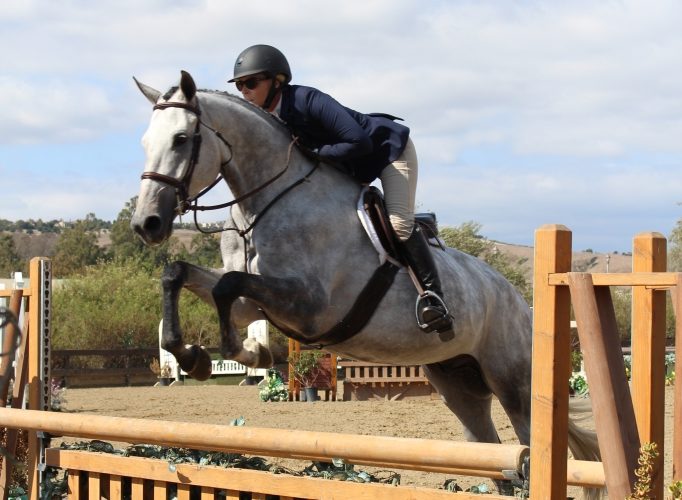I could feel the tears of frustration welling up in my eyes as I exited the show jumping ring this weekend. Another less-than-perfect round, another handful of rails down. I hated the thought that I couldn’t go in and deliver a clean round to save my life. I wasn’t being a sore loser. I knew exactly why I had those rails down: too deep to the second part of the two stride, too long and strung out to fence number nine. I was frustrated because I felt like I knew the answer but was failing to execute when it mattered most.
As always, my trainer met me at the side of the ring for my post-round recap. We went over what things I struggled with in my ride, followed by what I actually did well. It seemed like the former outweighed the latter when she said, “I know it doesn’t feel like it, but you are making so much progress.”
I let that thought soak in during my long walk back to the stabling area. In most cases, seeing progress requires tangible measures of success such as, you know, not continuing to have rails down on course or walking out of the ring with a ribbon. But when it comes to working with horses, sometimes progress isn’t always that simple to measure.
Progress isn’t always in the ribbons. Sometimes it is in the fact that you got your heels down or that you followed the horse even though you didn’t get the most perfect of distances. Progress is committing to the ride you have rather than circling because you just aren’t sure. Progress is going in, and despite having some rails down, knowing that you had a plan and you tried your hardest to follow the plan by counting the strides, staying out in the corners and taking the best approach for you and your horse.
Progress is knowing that you didn’t win and that your ride wasn’t your best and going home to work on improving your hiccups. It is saying, “I know I should’ve pushed for the two rather than accept the half-stride.” It is leaving the ring, looking your coach in the eye and admitting where you messed up.
Two years ago, I couldn’t tell you why my ride went wrong. If I had a rail, I was always asking, “why?” And while I am still having rails, I know understand the mechanics of my ride and why things went awry. I am starting to get a feel for a weak canter or when to sit back and accept the distance rather than push for the long one. I am starting to use my outside rein to turn, rather than trying to indirect rein my way around the ring. I am maintaining an open hip angle and keeping my lower leg still and in-contact with the horse.
Sometimes we win more when we are losing. The big prize is that once we realize our mistakes and what we can do to be better, we can apply what we have learned to making ourselves the best that we can be.

